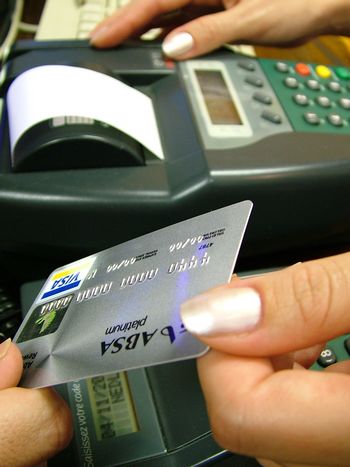Remember that (at least for US citizens) toll free numbers for the credit card company will not work if you are travelling outside of the country. So, when travelling abroad you really need the a regular number for the credit card companies as well.
Identity Theft Is Rampant: Good Advice On How To Prevent It
About three months before I moved with my family into our new home last Fall, I called our national mail company to make sure I filed the proper online forms to get our mail forwarded to our new address. The lady on the phone was really friendly: she said I had been thorough enough to submit the forms twice, surprisingly, however, using two different destination addresses.

Photo credit: Lotus Head
I'll spare you the details, but we spent the afternoon hurrying to the police station reporting identity theft and making phone calls to block bank accounts and credit cards. We were lucky - close neighbors of ours less so.
Unfortunately this sort of crime is not at all front-page news in the country where I live. For lack of evidence the local police dismissed the investigation into our case. Oh, by the way, the home address details the police station had on file for me were counterfeited too.
As you can imagine, I have my ears and eyes wide open when it comes to preventing my identity from being stolen again. I happen to subscribe to TechNews.com Daily Report, a technology headlines subscription service of the Washington Post. And there it was today - a link to a three-page editorial article called ChoicePoint Data Cache Became a Powder Keg by Washington Post staff writer Robert O'Harrow Jr.
The article describes the cunning ways used by those who are now standing trial accused of identity theft.
They obtain huge quantities of personal records, including Social Security numbers, credit status and other sensitive information from credential verification service providers such as ChoicePoint. Reportedly hundreds of thousands of personal records have been pulled by impostors already. ChoicePoint promptly announced that it will no longer:
"sell information products that contain sensitive consumer data, including Social Security and driver's license numbers, except where there is a specific consumer-driven transaction or benefit, or where the products support federal, state or local government and criminal justice purposes."
This is just the tip of the iceberg and federal investigators seem to be chasing after ghosts.
This is a worldwide crime.
Is there something we can do now to protect ourselves from this?
This is what you can do. Marc Orchant used his extremely popular Office weblog last Friday to forward the detailed tips he had just received from a close friend.
The tips in Marc's article Identity Theft is no joke - here's some free advice are practical and easy to follow.
For all of us concerned about personal privacy and security infringement, Marc explicitly encourages all readers to cite and propagate his friend's advice. Here are some of the advice tips he shares:
- Do not sign the back of your credit cards. Instead, put "PHOTO ID REQUIRED"
When you are writing checks to pay on your credit card accounts, DO NOT put the complete account number on the "For" line. Instead, just put the last four numbers. The credit card company knows the rest of the number, and anyone who might be handling your check as it passes through all the check processing channels won't have access to it. Place the contents of your wallet on a photocopy machine. Do both sides of each license, credit card, etc. You will know what you had in your wallet and all of the account numbers and phone numbers to call and cancel. Keep the photocopy in a safe place. I also carry a photocopy of my passport when I travel either here or abroad. We've all heard horror stories about fraud that's committed on us in stealing a name, address, Social Security number, credit cards.
Then, if the evil strikes anyhow, make sure you are prepared:
- We have been told we should cancel our credit cards immediately. But the key is having the toll free numbers and your card numbers handy so you know whom to call. Keep those where you can find them.
File a police report immediately in the jurisdiction where your credit cards, etc., were stolen. This proves to credit providers you were diligent, and this is a first step toward an investigation (if there ever is one). There is more in Marc's original post, though the extra advice may apply more to US citizens than to anyone around the globe.
| 2005-03-14 02:03:29 |
| 2005-03-09 15:59:02 |
The researchers at the Urban Legends Reference site take exception with a few of the points in the cited email (which has been circulating since 2002).
See for yourself at
http://www.snopes.com/inboxer/scams/credit.htm
| 2005-03-09 11:36:38 |
Buy a shredder and shred anything that has your personal info on it.
